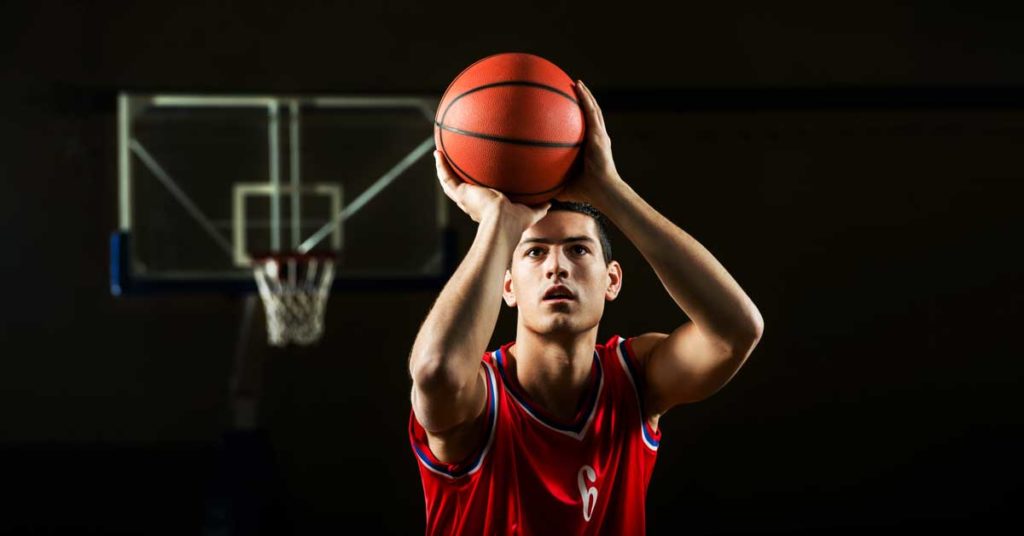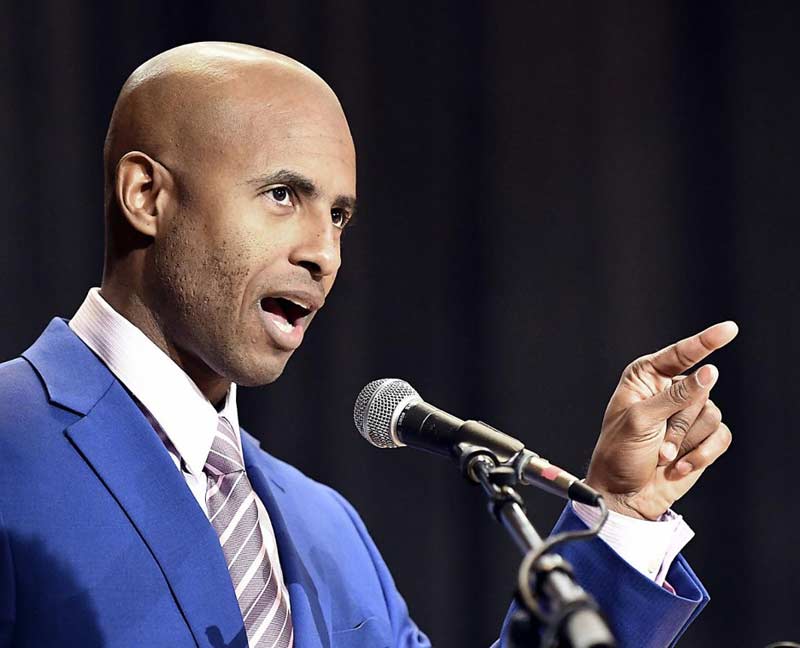
Derick Grant has experienced challenging moments in his life. These moments caused him to stumble and sometimes start over. But he knew these were the defining moments by which his most significant victories would be measured. He reflects on the fact that his belief and focus on his dreams were what helped him through challenging times. As a former professional athlete for the Harlem Globetrotters, Derick understands what is needed to perform at a high level.
In his TEDx speech “Minding Your Mind: What the Great Ones Don’t Tell You,” Derick spoke about the importance of cultivating your mindset as much as you develop your skill set. He is now living through his passion, helping people realize their hidden potential. He has a successful coaching firm that helps people gain an elite-level mindset, and his mentorship has produced professional athletes, corporate executives, and many others.
As one of the most sought-after performance mindset coaches in the world, Derick lives by the motto, “You will always only ever be whatever you think you are,” teaching people to first believe in themselves, and then they will see the results. Some of his current clients include Kyle Guy of the Sacramento Kings (NBA), Joe Reed of the Los Angeles Chargers (NFL), and Tyasha Harris of the Dallas Wings (WNBA).
Freelap USA: In the sports world, it’s extremely common for athletes to have skills trainers, strength coaches, dieticians, nutritionists, chefs, massage therapists, and all kinds of “coaches” to address their physical well-being. Why do you think it’s not as common for athletes to hire professionals who handle their mental well-being? And why do you think this disconnect exists?
Derick Grant: I think there are two reasons. Number one is the stigma behind mental health. Because of old paradigms and beliefs, we regard mental health as a sign of weakness, and that goes against our whole view on athletics. We don’t want to be perceived as weak, so we don’t talk about it. I think it’s more of society as a whole, but the micro will embody the macro.
Second, I think it’s because all of coaches’ and athletes’ physical qualities are things that can be seen or perceived by the five senses. An outsider cannot see someone’s mental health, so we ignore the signs of deterioration.
In reality, your mental health determines whether or not you operate at your full potential in terms of skill set. LIFE IS MENTAL!
Freelap USA: I’ve heard you speak many times about how the adversity in your life—often your lowest rock-bottom moments—led to you being the professional that you are today. It helped you find your true calling and passion. How do you think today’s young athletes mishandle failures and adversity? What principles do you instill in your athletes to help them use imperfect moments for growth?
Derick Grant: I think athletes today believe that there is such a thing as failure. If we think of adversity as simply a test to teach us a lesson that increases our internal growth and development, we won’t view it negatively.

I like to view life as a weight room. The heavier the weight, the more resistance my muscles will endure. From the added resistance, my muscle’s development will increase. Life is no different.
Adversity is needed to strengthen you at your core, mentally. You experience adversity to find out about a part of yourself that you didn’t know existed in order to help you evolve and grow. Your ability to prosper will be determined by your ability to shift your perspective and how you view adversity.
Freelap USA: You’ve worked with clients in the NBA, NFL, and WNBA, and with many other individual professional athletes. Of course, those athletes are physically gifted, but what are you noticing about their mentality and non-physical attributes that could have played a role in them getting to the elite level of their sport? How can younger athletes adapt these attributes early in their sports career?
Derick Grant: Here’s something I noticed from working with professional athletes: All of them have a belief in their abilities that transcends anyone else’s confidence in them. It’s almost like they’re borderline delusional. But it’s because they believe in their abilities so much.
The rest of the world might think they’re crazy if people knew how they view themselves. All this means is that what you believe about yourself and your abilities will be what you carry out. So, with athletes today—especially young athletes—I teach them to believe in themselves and what they’re capable of, regardless of what anyone else will say about them. You can only be whatever you think you are.
Freelap USA: Can you tell a story that illustrates some of your coaching principles in action and what an optimal mindset can do for an athlete’s performance in both their sport and life?
Derick Grant: A story that comes to mind is about one of my current NBA clients, Kyle Guy. In 2018, at the University of Virginia, he struggled with anxiety and depression, and we spent a great deal of the off-season working to restore and rebuild his mindset.
This was coming off the Cavaliers’ incredible regular season and eventual loss to a 16-seed in the first round of the NCAA tournament. It was the first time in history a 16-seed beat a 1-seed. A year later—his junior year—he was at the free-throw line in the 2019 NCAA Final Four. At the end of the game, Kyle needed to make two to tie and three to win.
We always focus on being present, in the current moment, and not allowing our minds to go to the future to create stress or anxiety. So, when Kyle stepped up there, you may have noticed he took deep breaths before he sank those clutch free throws.
We have consciously worked on following our breathing to ensure that our minds stay in the present moment. Kyle stepped up there and knocked down all three free throws. The University of Virginia won a national championship, and he was named Final Four Most Outstanding Player.
Freelap USA: What are some actionable takeaways that coaches can implement or share with their athletes today to help them plant the seeds of growing a better mindset?
Derick Grant: I think teaching your athletes how to be present will have the biggest impact. You can only live life wherever your feet are, but minds are so powerful we can mentally go into the future or back to the past.
So, teaching your athletes to keep their minds where their feet are and focus on the present moment where life is being lived and the game is being played will help them build the foundation of a bulletproof mindset.
Athletes can obtain presence by doing breathing exercises and meditation. Before a workout, I have my athletes do 15 minutes of breathing exercises where they consciously track their breath in and out. This can center their mind and keep them in the present moment. All athletes will perform best when their mind is where their feet are—the present moment.
Since you’re here…
…we have a small favor to ask. More people are reading SimpliFaster than ever, and each week we bring you compelling content from coaches, sport scientists, and physiotherapists who are devoted to building better athletes. Please take a moment to share the articles on social media, engage the authors with questions and comments below, and link to articles when appropriate if you have a blog or participate on forums of related topics. — SF

